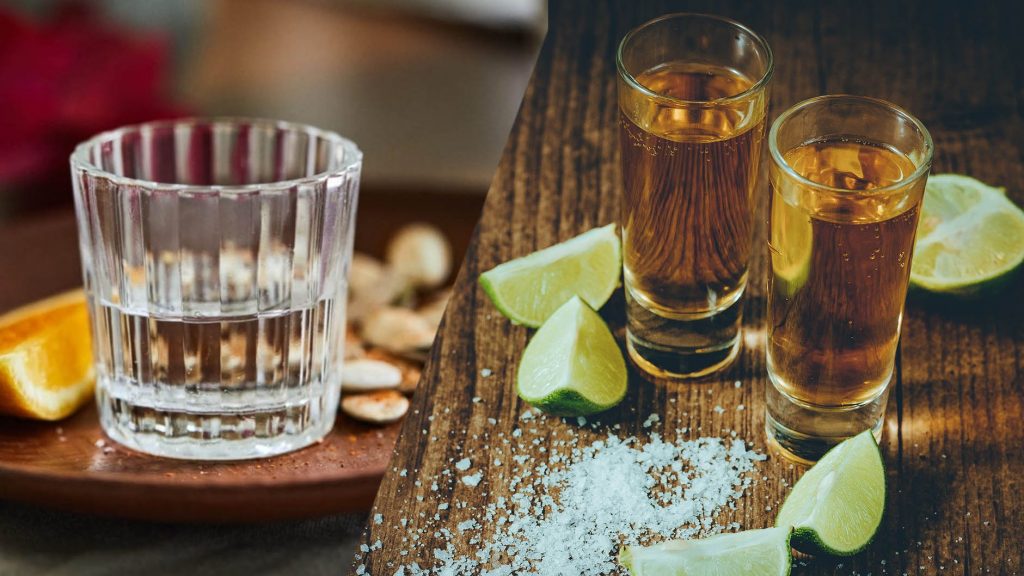To understand the differences between the Mexican spirits Tequila and Mezcal, we must first come to terms with the similarities. And, if truth be told, embrace the confirmation that it’s all mezcal.
It’s All Mezcal
When we look at the origins of the word “mezcal” /meˈskal,məˈskal/ we learn that the word mezcal comes from the Aztec dialect Nahuatl word “mexcalli”, which means “cooked agave”. The word “Mezcal” is later adapted when the Spaniards arrived in the Americas and began to distill the alcoholic spirit made from any type of agave.
The History of the Agave
Pre-hispanic cultures of central and north America have used the ancient agave for various purposes over thousands of years, including textile, food, medicine, tools and beverage. The agave, or maguey is represented in several ancient codexes as a celestial and sacred plant. The fermented agave beverage pulque known as the “elixir of the gods” was exclusively for ceremonial purposes.

When the Spaniards arrived in the Americas, the technique of distillation came with them. The first distilled spirits of pulque began to be made. The spirits called Mezcal (Spanish modification of “mexcalli”) began to be made, from other types of agave, not just agave pulqueros. In 1795 a Royal order from the Spanish government prohibited the production of mezcal. Ten years later, in 1805 the first permit to produce mezcal was granted, in a small town near Guadalajara in Jalisco. That small town was Tequila, and the man who received this permit, is none other than Jose Cuervo.
Distilled Agave Spirits (Mezcal) Is Prohibited in the Rest of the Country
Since the Royal order, only mezcal from Tequila is legally produced, by Jose Cuervo and Don Cenobio Sauza. Meanwhile, mezcal production becomes a clandestine operation. The “Federales” are tasked to search for the clandestine mezcal producers often hiding their operations near rivers. The traditional mezcaleros continued to produce mezcal in a rustic form while mezcal from Tequila experiences an industrial revolution. This is where Tequila takes a left turn away from mezcal.

The Geographic Position of Tequila
Tequila is a small town located in Los Altos de Jalisco. With several communication channels to the entire area and located close to Guadalajara (the 2nd largest city in Mexico) Tequila is beneficially located. Before the industrial age, mezcaleros from around the republic would migrate to Tequila to sell their mezcal. As business and leisure travelers would frequent to the town of Tequila for its proximity to Guadalajara, Tequila becomes a hub for the sell of the Mexican spirit that is comes to be known as “tequila” the most famous mezcal of Mexico.
Made famous in the Golden Age of Mexican film, and dedicated songs by Mariachis, with cultural practices and characterizations drawn from Jalisco, romantic stories of revolution, all while drinking mezcal, called “tequila.”
Tequila, a drink for machos and romantic heroes. What a Mexican should be.
– Unknown
Tequila becomes the first massive industrialized form of mezcal, which until now has been produced for hundreds of years as a rustic or artisan process. Agave Angustifolia is the agave of choice, for its quality to grow in various conditions, easy to cultivate and clone, which led to the variation of Weber or “Blue Agave” used for tequila. The traditional stone earthen ovens (barbacoa) volcanic stone pits, were first replaced by above-ground brick ovens (hornos), then for autoclave ovens, where the agave is then steamed vs roasted, eliminating the smoky characteristic of mezcal. The milling process is then mechanized and distillation in stainless steel.

Denominación de Origen D.O
The Denomination of Origin (DO) is a distinctive sign that identifies a product as originating in the country or a region or locality of the national territory, when its quality, reputation, or other characteristic is attributable, fundamentally to its geographical origin, taking into account consideration, in addition, other natural and human factors that affect the characterization of the product. By place of origin, meaning a city, a town, a region, a country.
Mezcal, and or some agave distilled spirits are now recognized by the DO. The different denominación de origen you will find for agave distilled spirits in Mexico are; Bacanora, Mezcal, Raicilla, Sotol, Tequila. You can also find bottles, which do not have the DO, and will be labeled “Destilado de Agave” or Distilled agave spirit. And, as we first began this discussion – it’s all mezcal.
